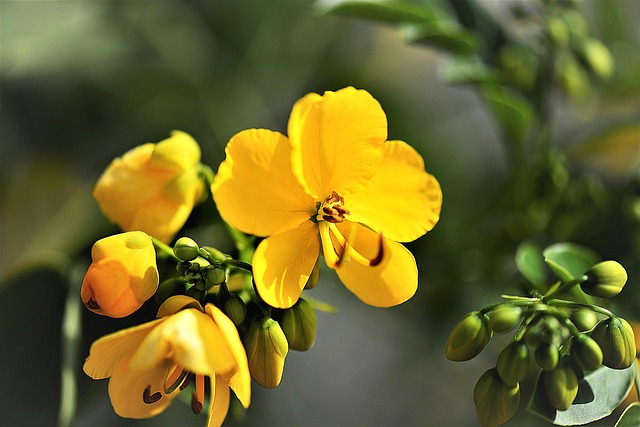Senna Leaf
Also known as
Senna alexandrina, Alexandrian senna, Khartoum senna, and Tinnevelly senna.
Introduction
The sennas are scrubby desert plants of North Africa. Senna has been used around the world for thousands of years as a laxative.
Constituents
1-3% hydroxyanthracene glycosides, mainly sennosides A and B, which are rhein-dianthrones, and smaller amounts of sennosides C and D, which are rhein-aloe-emodin-heterodianthrones; naphthalene glycosides; flavonoids (derivatives of kaempferol and isorhamnetin); 10-12% mineral matter; 7-10% mucilage (galactose, arabinose, rhamnose, and galacturonic acid); about 8% polyol (pinitol); sugars (glucose, fructose, and sucrose); and resins.
Parts Used
Dried leaf, and/or pods.
Typical Preparations
Usually as an extract, capsule or tablets. Can be taken as a tea.
Summary
Senna encourages bowel movement by inhibiting the smooth muscles that retain stool and stimulating the smooth muscles that push stool through the intestine. The herb doesn't work unless the sennosides in the herb are transformed into rheinanthrones by beneficial bacteria in the colon. The leaf of senna is fairly powerful and for a more mild effect, it is recommended that you use the pods.
Precautions: If you experience cramping or abdominal pain, you've taken too much. Don't take senna or any other stimulant laxative if you take Lasix (furosemide); the combination can lead to potassium depletion. Not known to be safe during pregnancy, although no complications have ever been reported. The use of Senna should not be administered over extended periods of time as it is a bulk forming laxative and must be taken with adequate fluids.
For educational purposes only. This information has not been evaluated by the Food and Drug Administration.
This information is not intended to diagnose, treat, cure, or prevent any disease.
Unless otherwise stated, this information courtesy of MOUNTAIN ROSE HERBS, with full, written permission for reuse. For further traditional information concerning SENNA , please visit this excellent resource fromBotanical.com. Used with full, written permission.







